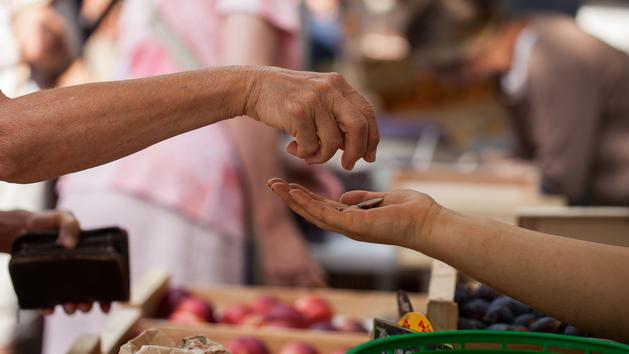The health crisis has shaken up the consumption habits of the French.
According to the conclusions of a study conducted by ObSoCo with Cofidis, 42% of them now want to “
consume better
”, that is to say to “
buy really useful products
”.
Read also: Leclerc, Lidl and Intermarché benefit from an increase in consumption
This desire is particularly found among young people in the 18-25 age group (50%), city dwellers (41%) and middle managers (36%) who aspire to more responsible consumption.
What products are considered essential by the French?
To the question "
What are the priority items of expenditure for you over the next 12 months?"
“, The French cite food as a priority (74% of respondents).
The podium is then completed by health, mentioned by 41% of respondents and by water / electricity (40%).
Housing development is mentioned by 19% of respondents, making it the fourth item of expenditure deemed a priority by the French.
On the other hand, among the consumer items neglected by the French - because they are considered secondary - we find clothing, which is considered a priority by 11% of respondents, which is still three points higher than spending on gifts given to loved ones. considered essential by 8% of respondents.
At the bottom of the ranking, we find spending related to personal care (6% of respondents) and cultural products which completely take second place since only 4% of respondents consider this expense item to be important.
The health crisis was the cause of a drop in income for more than one in three French people
Unfortunately the will of the French does not always match their purchasing power.
Indeed, “
consuming better
” is more expensive according to 79% of French people questioned.
The budget of more than a third of the French has been affected by the crisis since 38% of them say that the health crisis was the cause of a drop in income.
Consequently, the latter must more than ever find a balance between the desire and the possibility of consuming, even if it means imposing some restrictions.
Thus 56% of French people impose at least one type of restriction in terms of food for financial reasons.
In detail, 80% of individuals who say they impose dietary restrictions avoid buying food products from major brands and 79% favor the consumption of inexpensive foods.
The study also reveals that 37% of French people impose restrictions in terms of health for lack of sufficient budget.
Among them, 64% say they do not buy drugs other than those prescribed by their doctor and 54% give up specialist consultations if they are not fully reimbursed.
Another item of expenditure which is also subject to restrictions: Accommodation.
In fact, 9 out of ten French people restrict themselves to investing part of their savings there, in particular tenants (94%) for financial reasons.
What are the financial strategies favored by the French?
To finance their projects, the French adopt different strategies.
For essential projects such as health or those necessary in everyday life, these French people prefer to tap into their personal savings.
Thus 35% of respondents use it to finance their health expenses and 38% to buy or replace high-tech, computer and telephone equipment.
To finance longer-term projects relating to comfort of life, the French favor the so-called “small steps” strategy, in other words putting money aside every month.
38% of them therefore adopt this strategy to finance the development of their homes and 37% to replace certain equipment, especially household appliances.
To read also: Fashion: consumers demand “made in France”
Finally, 19% of French people surveyed say they are ready to take out a consumer loan to finance at least one project they want to carry out, this trend is particularly observed among people under 45 years of age since more than a quarter of 'of them (26%) say they consider this type of solution.

